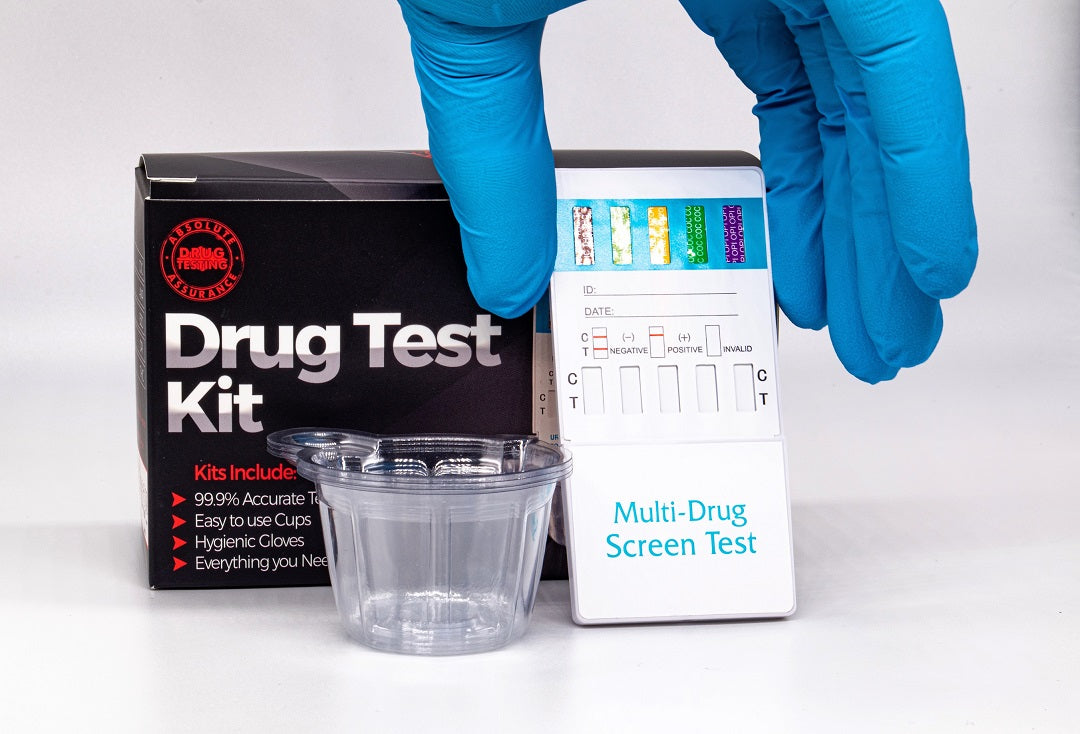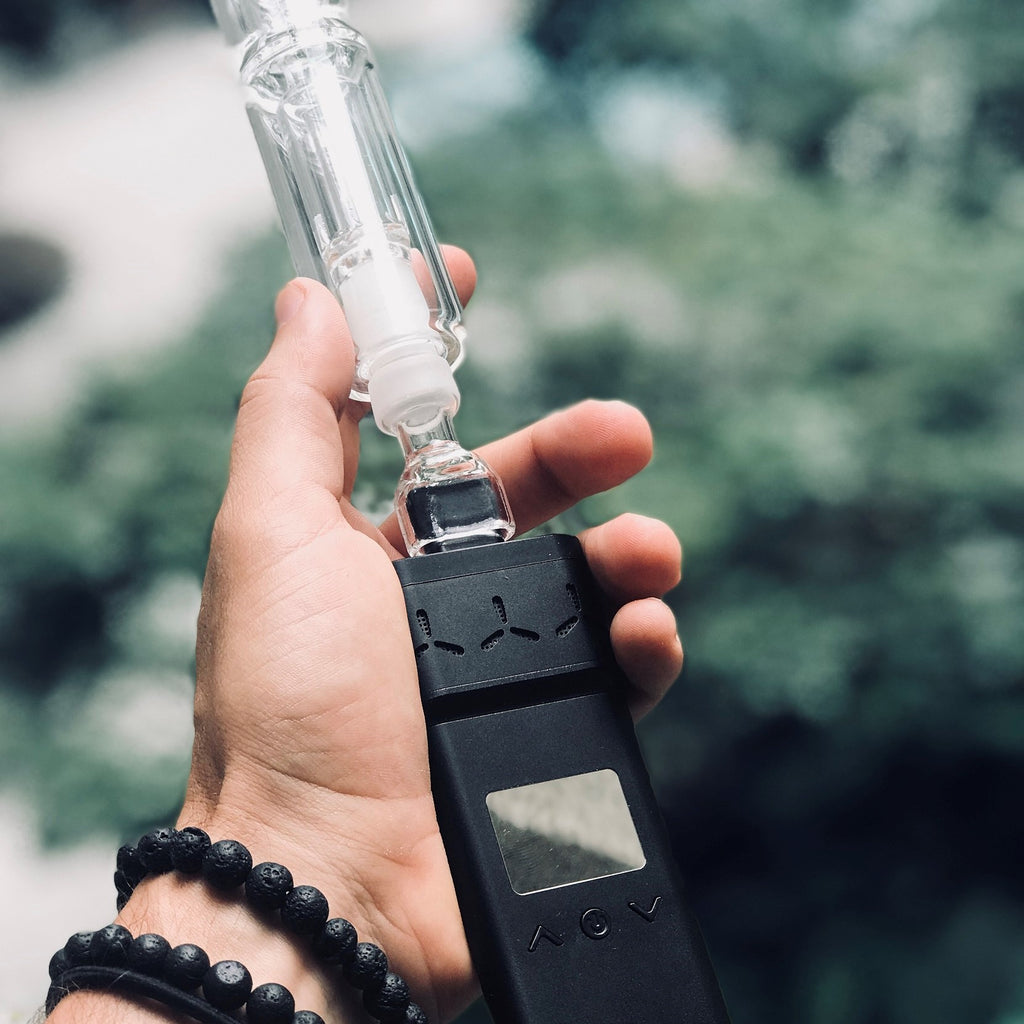How to A Pass Marijuana Drug Test

However, we believe no one should be compelled to submit to urine testing, particularly for marijuana. Apart from suing, the greatest protection against urine testing is to remain clean.
Sadly, urine tests may identify marijuana 1-5 days after an infrequent use, 1-3 weeks after a regular usage, and 4-6 weeks for many daily users.
This is irrelevant to employers in today's anti-drug frenzy since urine testing only identify non-psychoactive metabolites, not THC, the psychoactive component in marijuana.
If you are looking for work, expect to get tested and avoid marijuana.
Recognizing that many of you may encounter unexpected drug testing, we provide the following advise with our best intentions (but no guarantees!).
How to Pass a Marijuana Drug Test

A online search for “how to pass a drug test” may be overwhelming, full of fast solutions, misconceptions, and poor advice from strangers.
So, what is a stoner (or a casual cannabis user, or a medicinal patient) to do when they just require one option?
To pass a marijuana drug test, you must first grasp how drug testing and detoxification operate. We did all the research for you so you don't have to.
How long does marijuana remain in you?
Answer:
- 30-45 days urine test (daily consumer)
- 45-60 days for a blood test (daily consumer)
- 90-120 days of hair (daily consumer)
- 7 days Saliva Test (daily consumer)
What determines how long THC stays in your system?
Answer:
- Biomass (BMI)
- Metabolism
- THC levels in the body
The natural timetable for THC exiting your system varies depending on your age, body mass, metabolism, frequency, length, and the strength of the cannabis ingested.
For most individuals, it takes 4-6 weeks for THC from cannabis to naturally leave your system after use.
THC is fat-soluble, meaning it gets stored in your fat cells and organs.
Generally, the less often you eat and the less body fat you have, the faster you cleanse. As you would expect, the more regular and intense your intake is, the longer it takes to get rid of THC, which frequently involves detoxification and a strict diet plan.
What are the drug tests?

Answer:
- Urine Test: The Most Common Drug Test
- Hair Test: The Newest Drug Testing Method
- Less common—for specialized or sanctioned drug testing.
- Infrequently used for government/roadside drug testing
The urine test is the most convenient and least expensive drug testing technique utilized by companies and drug testing laboratories.
Because hair testing may identify prior drug use much longer than other tests, it is gaining favor among the government and some businesses with specialized jobs.
Larger businesses and governments will do a blood test.
Roadside testing usually uses saliva samples. Ask which exam will be given so you are prepared on test day.
How do pot drug tests work?
Answer:
THC residues in fat cells are detected by drug tests using urine, hair, blood, or saliva.
Urine test
Drug tests utilize nanograms per milliliter, or ng/mL. The most frequent urine test detects THC levels of 50ng/mL or above.
The test requires at least 50 nanograms of THC per milliliter of urine to be positive.
There are two kinds of urine drug testing. Immunoassay is the most prevalent and provides results fast. This type of testing is not without flaws; immunoassay tests may occasionally provide false positive results.
If the first test is positive, a second test is performed to confirm the result. The gas chromatography/mass spectrometry (GC/MS) test is more expensive and takes more time to get results; however, it is a much more reliable test, rarely giving false positives.
Urine testing may be inconclusive if the findings are diluted. The retest is typically the following work day, giving you more time to detox. As a consequence, alternatives for disputing and requesting a re-test may be viable depending on the drug test.
Hair test
This is another type of test that employs two tests to confirm a positive result. The first test is an ELISA, and the second is the GC/MS.
Most hair drug tests examine the first inch and a half of hair from the scalp down. The average hair on your scalp grows at the rate of half an inch per month. An inch and a half of hair may therefore identify THC usage for up to 90 days.
Despite the ability to test further back than a urine test, hair tests are not the best choice for identifying recent cannabis use. This is because it can take up to a week for traces of THC to show up in your hair.
Additionally, some medications have been known to produce false positives, so be sure to let the tester know if you are on any prescription or over-the-counter drugs.
Hair testing is a scary technique that claims to identify drug usage for months, or whatever long one's hair has grown.
Hair tests are extremely sensitive to cocaine, but not to marijuana.
Hair testing for marijuana are not universal. Testing on thick, black hair is considerably more sensitive than light, thin hair.
Although the FDA and scientific community have been skeptical of hair testing, it hasn’t prevented employers from adopting it.
Blood tests
Blood testing is the best way to detect recent cannabis usage. THC is detected in your blood within seconds after smoking, which is why some roadside testing are blood tests.
THC may be found in your blood for up to two months after you stop using it if you just had one smoke with a buddy.
An accident or roadside sobriety check may need blood testing. Blood tests identify THC in the bloodstream, but they may also detect other metabolites.
However, heavy smokers may be positive for up to seven days after smoking. Saliva/oral fluid tests are less sensitive and show positive for 2-4 hours after smoking.

Mouth swabs
Mouth swabs are becoming increasingly popular since they are fast to use and give accurate recent usage information. As a result, police have used mouth swabs to test for intoxication.
DON’T RELY ON EXCUSES:
Although urine tests are not foolproof, they are tough to refute. False positives, when lab employees are falsely suspected of marijuana usage, are rare (however, not all labs do this).
To validate good findings, the more precise gas chromatograph mass spectrometer is used first (GCMS).
By doing so, you practically eliminate false positives in return for a high incidence of false-no drug usage false negatives. The test's sensitivity is defined by the metabolite concentration it is designed to detect: for the Department of Transportation, the cutoff is 50 ng/ml.
No known drug causes a marijuana false positive.
Ibuprofen (Advil, Motrin, Nuprin) used to interfere with the marijuana test, but that has been resolved. The EMIT test may produce false positives for amphetamine and other illegal substances, but not the GCMS.
“Passive smoking” marijuana is not an acceptable explanation at 50 ng/ml since only severe conditions may cause a non-smoker to test positive in urine (e.g., being stuck in a closet full of heavy smokers for hours).
Negative tests at 25 ng/ml or lower due to passive exposure
Do these tried-and-true techniques truly work?
Answer:
- Natural Detox: 30-60 days
- Detox Kits: 5-10 day THC flush
- Detox drinks may temporarily flush THC within hours.
- Synthetic Urine: works but is hazardous.
- Home remedies like Niacin, Certo, and Vinegar are BOGUS.
- Other Urine: Your straight edge friend's urine won't be warm enough.
Detoxing from cannabis takes time. The longer the detox, the better. Sadly, not everyone has enough time.
There are many ways to assist your body detoxify faster, but some work better than others. Check out our primer on the various kinds of detox treatments available to help you make an educated decision:
Detoxify
A natural detox usually takes 30-60 days. It needs a change in lifestyle and eating habits to ensure that your body gets rid of the THC accumulated in your system.
Everyone detoxes differently. Since cannabis is accumulated in fat cells, big everyday users have repo.
If you can't perform a full natural detox, the alternatives below are intended to assist those who don't have time. These won't fully cleanse, but they can help you pass a test. It's worth noting that lying on a drug test is prohibited in many states. Check your local laws!
Diuretics
Same-day detox beverages may help your body detoxify naturally, but they can also help you create a window when you can test clean.
Warning: Some detox treatments may strip urine of the markers that authenticate samples.
Remember, for urine tests, your sample needs to be the proper color, the right temperature, have the correct creatinine level, the correct ph level, and contain uric acid.
Kit detox
A good detox kit will remove THC from your urine sample without removing other indications. Unlike same-day detox beverages that just clear your urine for a few hours, a detox kit permanently cleans your system of THC traces.
Detox kits utilize herbal supplements to help your body's natural detoxification process. If you're not sure what kind of test you're having, try a full-body detox using a detox shampoo.
During your detox, you must abstain from all intake. After the completion of your detox kit and you pass the at-home test kit you will be permanently free of traceable THC levels. This is, of course, until you consume cannabis again.
Synthetic Urine
When it comes to synthetic urine, not having THC is the easy part. Labs are so sophisticated at this point that passing off a non-human source is almost impossible.
Making this sleight of hand even trickier, some tests require that someone monitor you as you produce your sample. Not to mention, walking around with fake pee in your pocket is just, well, gross. Avoid this option.
Home remedies
Many home remedies, like ingesting cranberry juice, tea, lemon juice, or apple cider vinegar, don’t detox so much as mask THC in your urine (or blood) so that it doesn’t register as strongly as it would normally.
Remember, the only way to truly detox is to give your body the time to do it naturally.
Certain things can help speed up the process—many of which offer great health benefits; however, none of them provide an instantaneous cleanse. These are myths and cannot ensure passing test results.
To pass a pee test:
Increase your fluid intake and urine flow to dilute the drug concentration in the sample below the detection threshold. You should drink as much as you can an hour or two before the exam.
Contrary to common belief, goldenseal, vinegar, niacin, and vitamin C do not assist.
However, high-dose aspirin may decrease the EMIT urine test's sensitivity (only).
Many individuals pre-wash themselves with alcohol and exercise, but this isn't necessary.
Never provide your first pee of the day, since drug metabolites tend to accumulate overnight.
You should also take a high dosage (50-100 milligrams) of vitamin B-12, found in B-complex multivitamins, before the test.
This is to turn your pee yellow, since clear, watery urine appears suspect to certain collectors (and no, vitamin C won't help). Some laboratories may reject a sample for being excessively watery, but they will usually allow you a second opportunity. Wait till your test findings are verified before compromising.
Diuretics, which promote urine, may help increase fluid output. Weak diuretics include coffee, cranberry juice, certain health foods, and pre-menstrual water retention medications.
To prepare for the test, you may need to take stronger diuretics, which are often given to manage high blood pressure.
Strong diuretics like furosemide (Lasix®) are exclusively accessible by prescription in the US, but are available over-the-counter in Mexico and other countries.
They may be harmful to diabetics or pregnant women, and long-term usage can create difficulties.
Except for sportsmen, diuretics are seldom tested in urine.
Former army drug testing officer Robert Freeman suggests the following routine (High Times, Aug. 1988):
Take one 80 mg Lasix, a big glass of water, pee twice or three times, then take the exam.
A decent washout may get you through an exam on short notice if you're fortunate. Regular smokers should wait at least a week or more.
DRUG SCREENS?
Some chemicals may change body chemistry to conceal drug usage. While numerous items are presently promoted as drug tests in head stores and High Times advertisements, few are scientifically proven.
Activated charcoal, a popular detoxifier, may help reduce metabolite levels in long-term users if taken daily or weekly.
Theoretically, lecithin, an emulsifier, might be beneficial if taken regularly, although this hasn't been proved. Several high-priced herbal teas and powders are marketed as urine cleaners.
Some people have had great success with them, while others have not. Independent tests indicate success is due to water dilution, not the screen itself.
LEGAL CHALLENGES:
Pre-employment drug tests are not legally challengeable. Existing employees may be allowed to challenge their employers' drug testing policies in certain circumstances, depending on state and municipal laws.
If you don't sign anything that gives your employer the authority to randomly test you, you'll have more leverage to reject a test.
You may be able to sue if you believe you are being unfairly tested. San Francisco, Berkeley, and other cities restrict workplace drug testing to safety-sensitive jobs.
We regret having to expose these shady tactics, but we believe it is essential to protect innocent individuals from false drug charges. We encourage you to utilize this information properly and not to hide your marijuana usage.
Happy Vaping!


